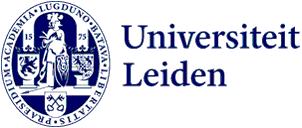In memoriam: Carla Risseeuw, Professor emerita of CADS (1947 - 2024)
It is with great sadness that we share the news that on Friday, May 3rd 2024, Carla Risseeuw, Professor emerita of CADS, passed away. Carla Irene Risseeuw retired as Professor of Intercultural Gender Studies from CADS in 2009 after a long and productive career.

Carla Risseeuw studied Cultural Anthropology and Development Sociology at Leiden at a time when many of the shibboleths of the age were increasingly being questioned, with young people looking at and beyond their immediacies. This included gender and ‘western’ certainties of the colonial past; it remained an inspiration throughout her life and work. After her student research in Ireland, her first research assignment was in West Kenya, where she spent three years with a leprosy project, conducting ethnographic fieldwork as a paramedic. From medical anthropology, she moved to gender, work, family, and organization in Sri Lanka as part of a VENA project. This culminated in her doctorate degree from Nijmegen, under the supervision of Gerrit Huizer. Her body of research grew diverse, even including writing on the theosophists in India as part of her post-doctoral work. Her central research interests were concerns of contemporary life, gender relations, and change in each of the contexts that she researched, with a historical lens on the entanglement of what had tended to be kept in separate domains - culture, economics, family, power, religion.
After stints at the Centre for Asian Studies, University of Amsterdam, and Nijmegen, she returned to CADS, Leiden University, to head the Women and Autonomy Centre (VENA). Here, along with encouraging research on South Asia and Sub-Saharan Africa, she also pushed for anthropological work on Europe to question the discipline’s paradigms and givens. She initiated collaborative research on changing welfare systems, family and gender relations in the Netherlands undertaken along with Indian colleagues. A theme which intrigued her was friendship. This provided her a path to challenge and revise dominant anthropological frameworks in the study of family, kinship, and personal relations. It also reflected a striking aspect of her persona—the lifelong relationships and personal commitments that continued with her from each ethnographic context in which she had lived—whether Kenya, Sri Lanka, or working class Leiden. These commitments, and the research projects in the contexts of which these came about, also demanded thinking about policy. During visiting fellowships in Tokyo and Berkeley, she took some of this work further. Collaborative inter-cultural research and publications on ageing and friendship, during the last years at CADS and when based at IIAS, Leiden, enabled her to bring back her earlier ethnographic contexts.
The depth of Carla Risseeuw’s anthropological corpus goes beyond her many publications – reports, journal and book articles, jointly edited and written volumes, and single-authored books. From her undergraduate times in Leiden, she loved photography and ethnographic film and constantly engaged with both. Through brilliant portraits, she analysed social and cultural relations, whether among working class families in Leiden, families, communities, and spirit healing in Kenya, or coir workers and their struggles in southern Sri Lanka.
Anthropology was central to her life and a commitment that went beyond academics. She will be dearly missed by all who have had the privilege of working with her.
Rajni Palriwala, New Delhi
Erik de Maaker, Oegstgeest
